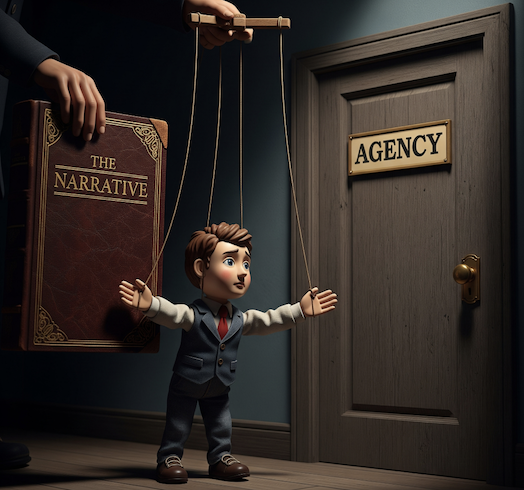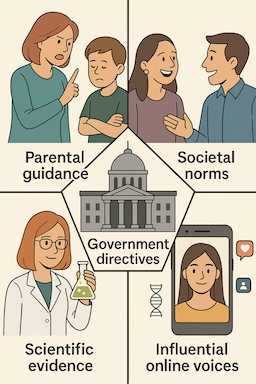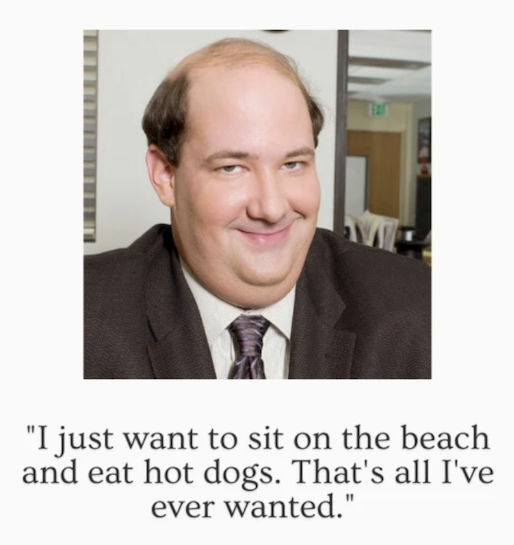Mind the gap!

TL;DR
A hand on the fire instantly teaches danger, but alcoholism’s harm unfolds slowly.
This latter indirection, or gap in feedback, is bridged with narratives: stories we adopt, often without noticing.
We underestimate how deeply the narratives we choose affect us. Mind the gap!
So what are narratives exactly?
Think of any explanations we can’t immediately verify for things we do or believe.
Examples:
- Proverbs, e.g. “an apple a day keeps the doctor away”. There’s no immediate feedback that junk food is bad, but fruits are good.
- “In winter, dress warmly or get ill”, which now became “in winter, it’s not the cold, but crowded indoor spaces that get you ill”.
- “trickle-down economics works, the rich will create more jobs!” and also “no, it doesn’t, it’s made up so that the rich concentrate all the wealth!”
Why are narratives problematic?
Life constantly demands decisions—from the trivial to the transformative. What to study, who to marry, how to spend, what to eat, whether to conform or question—each choice shapes your path. And behind every decision, often invisibly, sits a narrative guiding it.
Narratives serve as efficient guides, offering quick insights into the “right thing to do” without requiring exhaustive knowledge.
However, narratives can:
- be flawed
- be manipulated for other’s personal gain
- serve as a passive replacement for individual agency

Twenty years ago, narrative management was straightforward, due to limited sources like family, friends, and traditional media. In today’s diverse landscape, this has become more challenging.
Note: diligent readers will find a reference to Kahneman’s Thinking, Fast and Slow, whereby engaging System 2 (slow) can override intuitive judgments with careful analysis, but it requires effort and is often underutilised.
Is a narrative-free world feasible?
Ideally, eliminating all indirection would render narratives unnecessary. However, given our individually limited expertise, and collectively incomplete knowledge of all things, reliance on some narratives is inevitable.
This doesn’t absolve us of the responsibility to discern which narratives to trust. I argue that choosing poorly, or conversely, choosing wisely, has a much larger repercussion on our lives than we think.
How to navigate narrative management
Should you follow one or more of these?

The options can be overwhelming. But have you ever paused to consider your decision-making process? This article aims to prompt such reflection.
Each option holds merit, but how do you decide when they conflict with each other?
Science would seem a winner, considering the method, but:
- It’s hard to understand and thus follow, unlike proverbs.
- Intermediaries who digest them introduce biases, or…narratives!
- It’s not free from contradictions either.
There’s no silver bullet—and I’m not here to sell you one. This is a hard problem, and more importantly, a critical one—yet most people give it zero thought.
My guiding principles for discerning narratives
Maintain scepticism: question everything presented to you. Consider the drawbacks hidden behind the visible benefits, play devil’s advocate, and scrutinise marketing claims. If something lacks transparency or seems too good, assume it’s not as it seems.
Beware of status quo bias: challenge the tendency to favour familiar narratives due to upbringing or social circles. Research diverse perspectives. Smell your conformity.
Prioritise delayed gratification: avoid instant-gratification traps like “buy now, pay later” schemes or sacrificing long-term health for short-term pleasure. Don’t hurry to indulge in rewards; they will come naturally as you wisely choose and apply the right narratives.
Experiment with new narratives for 3 to 6 months: if feedback was immediate, it wouldn’t be a narrative. Evaluate their effectiveness through regular reviews and adjustments; just because it works for someone else it doesn’t necessarily work for you, but it might just change your life.
Expand your horizons through travel: meeting many cultures teaches you conflicting narratives, so over time you get to see which ones work better for you and others. Push yourself to try them. Climb off your comfort zone.
These may seem obvious — but obvious isn’t the same as applied. It’s easy to nod along with principles like these. But agreement alone changes nothing. Take a moment to audit your choices: are you actively applying these ideas, or just passively endorsing them? The difference shows up in outcomes — not opinions.
Epilogue: Rejecting Common Narratives for Uncommon Gains
The law of minimal effort — and when to ignore it

- 💋 “That’s not in my job description.”
- 💋 “If nobody notices, it doesn’t matter.”
- 💋 “Let’s just order food, I’m too tired to cook.”
We’re wired to conserve energy: working hard is seldom mandatory and it’s fatiguing. Societal pressure may encourage hard work, but it doesn’t demand it. So we don’t do it.
This instinct is often valid — but that’s exactly why it’s powerful to reject it selectively. Because most won’t.
Where effort is rare, results are asymmetric. The bar is low. Push through and you’re competing with few. That’s where high-leverage gains live.
Use it: Treat job-hunting, personal goals, or big opportunities like full-time missions. Outwork the norm. It’s not about grinding always — it’s about grinding when others won’t.
Wealth isn’t about status — it’s about options

- 💋 “If you’ve got it, flaunt it.”
- 💋 “Money’s meant to be spent.”
- 💋 “You deserve to treat yourself.”
Many upgrade their lifestyle as income rises. Rent, gadgets, cars — it’s all supposed to scale. But most of that spending just mimics what others do.
The real question: does this expense move you closer to your long-term plan, or further away?
A plan means:
- A clear picture of stable, long-term happiness.
- Medium-term steps to get there.
- Daily systems that support it.
Wealth is the fuel for this. Nothing else.
Use it:
- Spend with intent, not impulse. Reject status-driven consumption.
- Build your freedom, not your image.
- When you do spend, invest in well-being — relationships, health, and peace of mind.
Diet, sleep, and exercise are “optional” — until they’re not

- 💋 “Life’s too short to skip dessert.”
- 💋 “I’ll sleep when I’m dead.”
- 💋 “I’m too old for the gym.”
We’re consistent about things with immediate consequences (hunger, bills). But for enough good-quality sleep, proper diet, and sufficient exercise, most wait until the damage shows.
These are three of the main foundations of well-being. They prevent illness, stabilize emotion, sharpen cognition, and increase your odds in everything else.
But they’re effortful, and there’s no immediate punishment or meaningful social pressure when skipping them. So many do.
Use it:
- Reject your culture’s defaults if they harm your body.
- Train hard, even if it’s inconvenient — especially if you’re aging.
- Respect your sleep time.
- Eat to fuel, not soothe.
Mastering these removes dozens of hidden barriers — emotional volatility, poor focus, low energy — and replaces them with quiet, compounding advantage.